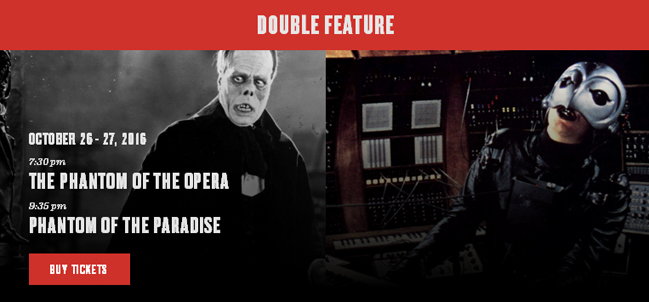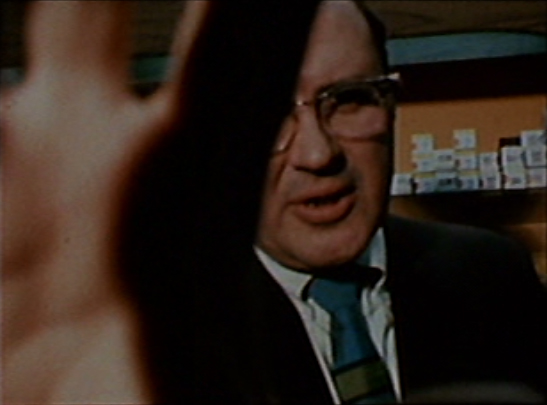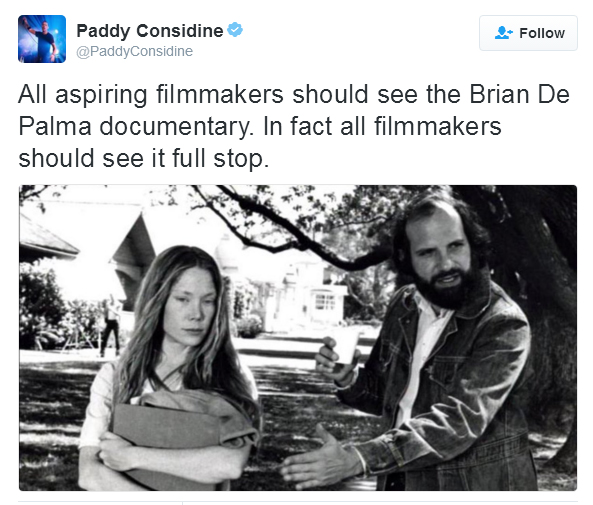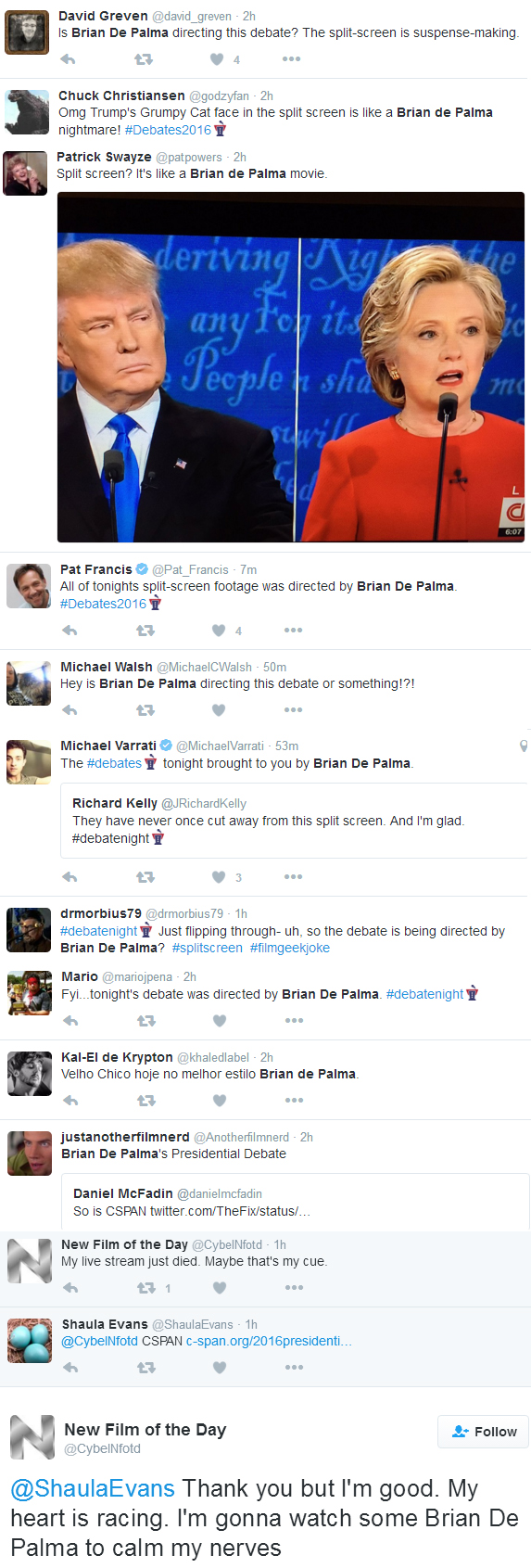"WORK IN PROGRESS" STUDY PRESENTED AT LUMIERE FEST IN LYON, w/14 FILMS FROM 1970
 Deadline's Nancy Tartaglione posted an informative summary yesterday of Quentin Tarantino's masterclass on the cinema of 1970, which took place Wednesday night at the Lumière Festival in Lyon. According to Tartaglione, Tarantino told the packed auditorium of about 2000 people that for four years now, he's been researching 1970 as a turning point for American and international cinema. Introducing it as a "work in progress," Tarantino said, "Am I going to write a book? Maybe. Is it going to be a six-part podcast? Maybe. A feature documentary? Maybe. I’m figuring it out."
Deadline's Nancy Tartaglione posted an informative summary yesterday of Quentin Tarantino's masterclass on the cinema of 1970, which took place Wednesday night at the Lumière Festival in Lyon. According to Tartaglione, Tarantino told the packed auditorium of about 2000 people that for four years now, he's been researching 1970 as a turning point for American and international cinema. Introducing it as a "work in progress," Tarantino said, "Am I going to write a book? Maybe. Is it going to be a six-part podcast? Maybe. A feature documentary? Maybe. I’m figuring it out.""Now in its eighth edition," reports Tartaglione, "this is a festival close to Tarantino’s heart. It’s largely a retrospective with hundreds of restored films, thematic strands and uncovered gems. This year, the filmmaker has curated a group of 14 films from 1970 which he’s been presenting throughout the week."
A list of those 14 films can be found at Beverly Cinema. They include four intriguing double-features, and six stand-alone screenings:
Love Story by Arthur Hiller (1970, 1h39)
Deep End by Jerzy Skolimowski (1970, 1h40)
The Bird with the Crystal Plumage by Dario Argento (1970, 1h32)
The Lady in the Car with Glasses and a Gun by Anatole Litvak (1970, 1h45)
Claire’s Knee by Eric Rohmer (1970, 1h45)
Le Boucher by Claude Chabrol (1970, 1h33)
The Kremlin Letter by John Huston (1970, 1h40)
The Private Life of Sherlock Holmes by Billy Wilder (1970, 2h05)
Five Easy Pieces by Bob Rafelson (1970, 1h38)
Beyond the valley of The Dolls by Russ Meyer (1970, 1h49)
M.A.S.H. by Robert Altman (1970, 1h56)
The Liberation of L.B. Jones by William Wyler (1970, 1h42)
Drive, he said by Jack Nicholson (1970, 1h35)
Zabriskie Point by Michelangelo Antonioni (1970, 1h40)
In addition to all of that, Tarantino was also on hand to present Saturday night's opening film, George Roy Hill's Butch Cassidy and the Sundance Kid, which, at the beginning of 1970, garnered an Academy Award nomination for best picture.
Tartaglione's article includes a passage in which Tarantino discusses his love for Altman's M.A.S.H. ("it was the first movie to truly deal with the dilemma of Vietnam"), although he and Altman did not like each other.
CASUALTIES OF THE POTENTIAL "NEW CINEMA" - "GENUINE BLACK CINEMA" GAVE WAY TO BLAXPLOITATION, EROTIC CINEMA WENT BACK TO PORNO
Here's more from Tartaglione's article:
Asked why he has chosen to focus on 1970, Tarantino cited the 2009 book by Mark Harris, Pictures Of A Revolution: Five Movies And The Birth Of The New Hollywood. The book chronicles the “real emergence of the New Hollywood,” Tarantino explained, and noted that “By the end of 1967, new Hollywood had won, only they didn’t know it yet. And Old Hollywood was over by 67 even though they didn’t know it yet.” He called Pictures Of A Revolution “the best cinema book written this decade.”By 1970, Tarantino said, “New Hollywood was the Hollywood and anything that even smacked of Old Hollywood was dead on arrival.” The filmmaker said he became interested in when the revolution was won and, “not coincidentally, I was alive in 1970 and very conscious at 7 years old when my parents were taking me to all types of movies.” Now researching that year, he said, “the more I started going to the library and looking up newspaper articles of what it was like, I realized New Hollywood had won the revolution but whether it would survive wasn’t clear. Cinema had changed so drastically that Hollywood had alienated the family audience.”
And, although they were big fans, “the hippie audience wasn’t really moviegoers. Society demanded (the Hollywood new wave) but that doesn’t mean that they supported it as a business model and it made me realize that New Hollywood cinema from 1970-76 at the very least was actually more fragile than I thought it was. That experiment could have died in 1970.” He cited films like those that he’s showing here along with Carnal Knowledge, The Godfather, The Exorcist and Chinatown. But if MASH or Five Easy Pieces hadn’t worked in 1970, “It’s doubtful there would have been a Godfather or an Exorcist.”
But, he hasn’t set out to make a Top 10 list. “Oddly enough, it was the films on the lower end of the Top 30 or 40, which, while they weren’t as good, in a weird way were more interesting to me… I’m always going to come at it from a critical or cinephile perspective but I wanted to put that in the minor and make it more as a historian or a sociologist.”
As part of his research, Tarantino says he’s been watching prints, DVDs, old videos and cable as well as reading reviews from the day. “That’s how I found the think pieces of the time. ‘What’s wrong with movies?’ ‘Movies have become scary,’ ‘Can Hollywood survive’.” It was a time “like a werewolf where the skeleton changes in An American Werewolf In London,” he said to laughter.
Patterns have emerged during the research. “There were a lot of promises made of possibilities of a new cinema. It was almost like, could Hollywood handle this kind of freedom? Could the public handle it? The freedom seemed limitless. Directors could adapt any book, could shoot anything. There were no restrictions and that was maybe untenable.”
“If you ask me, the promise was fulfilled,” he continued. But there were casualties. That included the possibility that a new “genuine black cinema” would emerge. He cited Hal Ashby’s The Landlord (written by Bill Gunn), along with Ossie Davis’ directorial debut Cotton Comes To Harlem and Melvin Van Peebles’ Watermelon Man. He also pointed to films such as Paul Bogart’s Halls Of Anger and Brian De Palma’s Hi, Mom! which were making an impact.
But “Blaxploitation” ended up taking the place of this promise, said Tarantino. Despite being a fan of that genre, he said, “Now I see Blaxploitation did derail a real rising voice.”
Same goes for erotic cinema. “There was the promise that eroticism in cinema would be taken out of the raincoat crowd and would achieve mainstream success and play in nice theaters, particularly for couples. We had some wonderful artists at that time like Russ Meyer and Ken Russell. That worked for a little while but ultimately a lot of them went back to porno and sexploitation.”
Updated: Thursday, October 13, 2016 1:17 AM CDT
Post Comment | Permalink | Share This Post




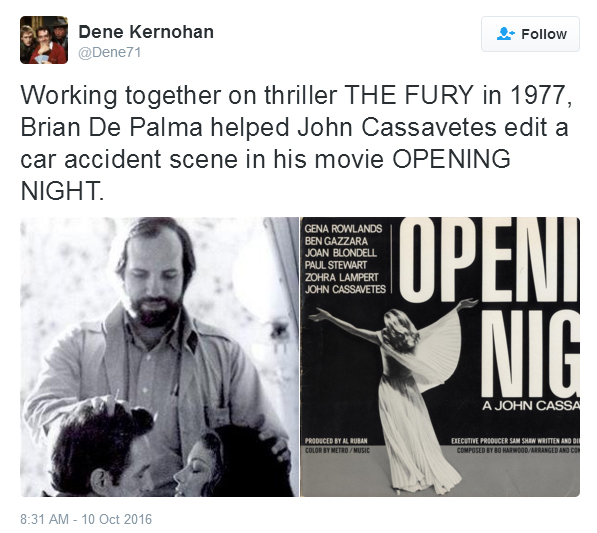
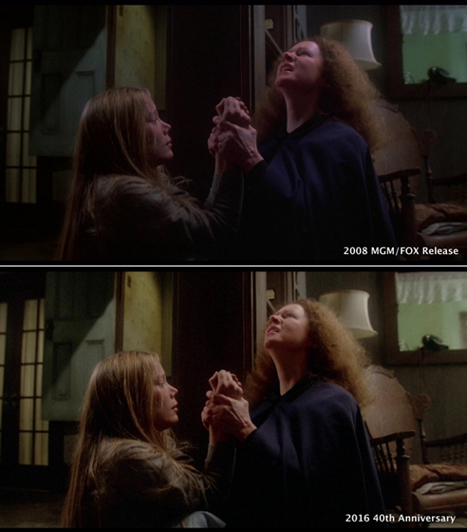
 Alice Lowe's directorial debut, Prevenge, is, according to
Alice Lowe's directorial debut, Prevenge, is, according to 